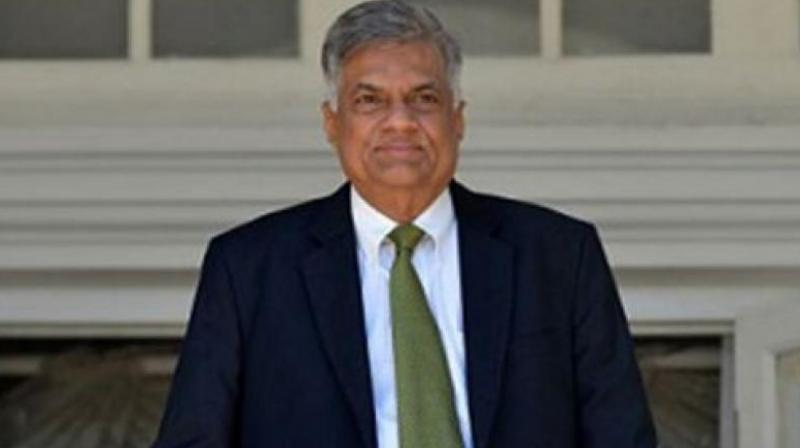Sri Lankan prime minister says refugees safe to come home

Canberra: Sri Lankan asylum seekers held on Pacific island camps who could potentially find new lives in the United States are free to return home without fear of persecution, Sri Lanka's prime minister said Wednesday.
Prime Minister Ranil Wickremesinghe made the comments during a visit to Australia in which he discussed with his Australian counterpart Malcolm Turnbull bilateral cooperation on combating people smuggling. No Sri Lankan asylum seeker has reached Australia by boat since 2013.
But Sri Lankans, Iranians and Afghans are the largest national groups among more than 2,000 asylum seekers living on the Pacific islands nations of Nauru and Papua New Guinea. Australia pays the countries to house them.
Australia refuses to resettle any of them and President Donald Trump has agreed to honour an Obama administration deal to take up to 1,250 of them. However, Trump added that they will undergo "extreme vetting."
Officials from the US State Department's Resettlement Support Center left Nauru last week after initial interviews with refugee candidates and a team arrived on Papua New Guinea's men-only camp on Manus Island on Tuesday to commence interviews there, refugee advocate Ian Rintoul said.
The US Embassy in Canberra did not immediately respond to a request for comment on the Manus Island interviews.
Wickremesinghe said the Sri Lankan asylum seekers had broken Sri Lankan law by fleeing to Australia for asylum. But they had nothing to fear from returning.
"They are welcome to return to Sri Lanka and we won't prosecute them," Wickremesinghe told reporters.
"Come back. All is forgiven," he said. "It is quite safe in Sri Lanka."
Sri Lanka has been attempting to reconcile its population since a bloody 26-year civil war ended in 2009.
Before becoming prime minister in January 2015, Wickremesinghe had accused the Australian government of turning a blind eye to human rights abuses in Sri Lanka in return for Sri Lankan government support in preventing asylum seekers from reaching Australia.
Wickremesinghe stood by that criticism on Wednesday, but said the bilateral relationship under the current Sri Lankan government had not suffered because of it.
"We felt that there could have been more emphasis on the human rights situation," Wickremesinghe said.
Turnbull said Sri Lanka was making great strides to recover from years of civil conflict.
"The Sri Lankan government's reconciliation agenda is laying the groundwork for long-term, sustainable and inclusive peace," Turnbull said.

